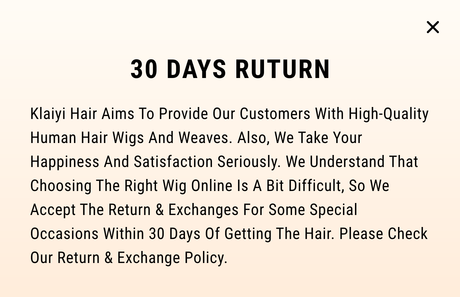Join The Forum To Get inspired Ideas
Why Do Blacks Wear Wigs ?
Introduction: A Symbol Worth More Than Hair
Why do black woman wear wigs? Hair has always held significant cultural and societal importance across the globe. But for Black women, hair isn't just hair—it's a symbol of identity, heritage, and resilience. From ancient civilizations to modern-day societies, the journey of wigs and weaves has been intertwined with the stories of Black women, reflecting struggles, triumphs, and the quest for acceptance.
1. A Historical Journey of Wigs and Significance
Wigs have a rich history dating back centuries. In ancient Egypt, both men and women adorned themselves with elaborate wigs as a symbol of status and beauty.
These wigs weren't merely fashion accessories; they held religious and cultural significance, often worn during rituals and ceremonies.
Fast forward to the 18th century, wigs became a symbol of prestige and power among European aristocrats, yet their.
significance transcended class boundaries, reaching into the lives of Black individuals in different ways.
In ancient Egypt, wigs weren't just about aesthetics; they were a reflection of one's social status and identity.
Whether it was a pharaoh's majestic headdress or a commoner's simpler wig, each style carried its own meaning.
For Black women today, embracing wigs can be a nod to this ancient legacy—a way to reclaim power and celebrate heritage.
2. Wigs and the Black Women in the '60s

The 1960s marked a pivotal moment in history, especially for Black women. As the civil rights movement gained momentum, so did the quest for self-expression and empowerment.
Wigs became a means of defiance against societal norms, allowing Black women to challenge Eurocentric beauty standards and embrace their natural hair textures.
In the era of Doo-Wop and Motown, hairstyles became more than just a fashion statement—they were a form of cultural expression.
From the towering beehives to the sleek pixie cuts, Black women used wigs and weaves to assert their individuality and assert their place in a rapidly changing society.
3. Reveal Weaves and Wigs

Behind every wig or weave lies a personal narrative—a story of identity, self-discovery, and resilience.
For many Black women, wearing wigs isn't just about covering up; it's about embracing versatility, experimenting with styles, and celebrating the beauty of diversity.
Contrary to popular belief, wearing wigs or weaves isn't always about insecurity or trying to conform to beauty standards.
It's about choice, empowerment, and creativity. Just like changing clothes or makeup, donning a different hairstyle allows Black women to express themselves freely, without limitations.
4. The Dual Roles of Wigs and Weaves
While wigs and weaves offer freedom and flexibility, they also come with their own set of challenges.
From the financial costs to the time-consuming maintenance, the love-hate relationship with hair extensions is a bittersweet symphony for many Black women.
In a society riddled with unspoken rules and imposed standards, Black women often find themselves navigating a minefield of expectations when it comes to hair.
Whether it's the workplace, schools, or social settings, the pressure to adhere to Eurocentric beauty ideals can take a toll on self-esteem and confidence.
5. Ingrained Prejudices: Schools and Workplaces

From discriminatory dress codes to outright bias, Black women face ingrained prejudices in schools and workplaces based on their hair choices.
The stigma attached to natural hairstyles or protective styles like braids and locs perpetuates harmful stereotypes and reinforces the need for greater awareness and acceptance.
The media plays a powerful role in shaping perceptions of beauty and identity. For too long, mainstream media has marginalized Black women, relegating them to narrow standards of beauty.
However, with the rise of social media and a growing demand for diversity, there's a gradual shift towards inclusivity and representation.
Constant comparisons to Eurocentric beauty standards can undermine the confidence and self-worth of Black women.
Whether it's through subtle messages in advertisements or outright discrimination, the beauty industry has a long way to go in embracing all forms of beauty.
6. All in Conclusion: An Embrace for Diversity
In conclusion, the journey of wigs and weaves for Black women is a testament to resilience, defiance, and the enduring quest for acceptance.
Beyond mere fashion statements, hairstyles serve as symbols of identity, culture, and personal expression. It's time to celebrate diversity in all its forms and embrace the beauty of individuality.
FAQs (Frequently Asked Questions)
Why do Black women wear wigs and weaves?
Black women wear wigs and weaves for various reasons, including versatility, self-expression, and cultural heritage. These hair accessories allow them to experiment with different styles and protect their natural hair.
Are wigs and weaves only worn due to insecurity?
No, wearing wigs and weaves isn't solely about insecurity. While some may use them for added confidence or to conform to beauty standards, many Black women embrace them as a form of empowerment and creativity.
Do wigs and weaves damage natural hair?
When worn and cared for properly, wigs and weaves shouldn't cause significant damage to natural hair. However, improper installation or neglecting proper maintenance can lead to issues such as breakage or traction alopecia.
How can society promote acceptance of natural hairstyles?
Society can promote acceptance of natural hairstyles by challenging stereotypes, implementing inclusive policies in schools and workplaces, and amplifying diverse representations in the media. Education and awareness are key in fostering a more inclusive environment.
What can individuals do to support Black women's choices in hair?
Individuals can support Black women's choices in hair by respecting their autonomy, advocating for inclusive beauty standards, and confronting discrimination or bias based on hairstyle. It's essential to listen to their experiences and amplify their voices in conversations about hair diversity.





























































































